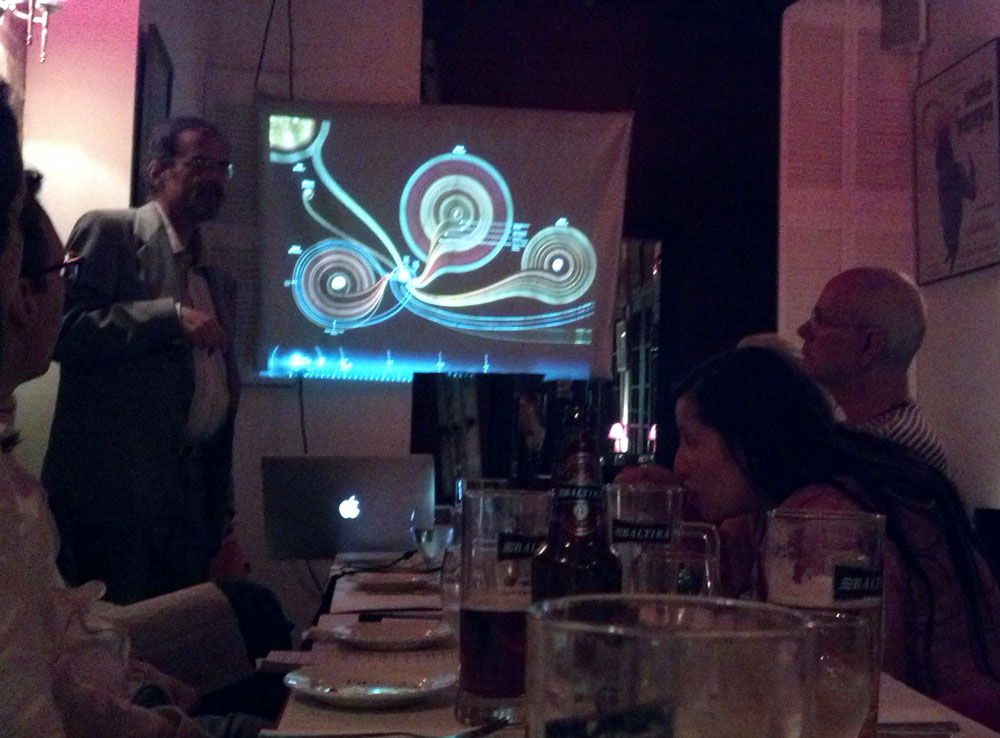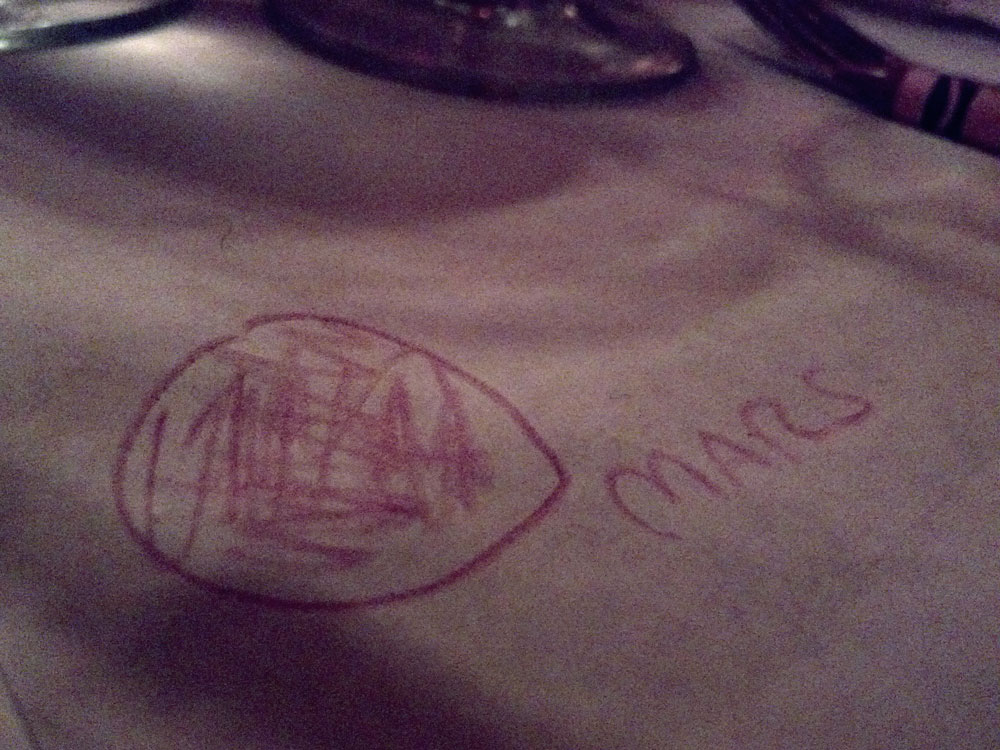Uncle Vanya
Tuesday, September 16 @ 7pm
Topic:
Arlin Crotts, Professor of Astronomy at Columbia University and author of The New Moon: Water, Exploration, and Future Habitation, will be joining us to talk about the nuts & bolts (and tastes & smells!) of living on Mars (and the Moon).

REPORT
The conditions on Mars are extremely hostile to us, and life there will take some getting used to. Transferring things from Earth to beyond is extremely expensive. Crotts stressed that we should be working with the resources that are already on Mars (and the Moon). He suggests going underground: using subterranean caverns and passages (including those that formerly held lava) to form inhabitable spaces. Moon dust might be used as building material, structurally it is likely to take up water like concrete.
For life on Mars to be sustainable – and less hostile – it’s critical that there is organic matter on Mars that isn’t just the bodies of the astronauts, Crotts says. In space exploration we’ll want to have a bio-reservoir outside the bodies of the astronauts–like soil, plants, which can handle and process toxins and pseudo-endocrine chemistry which is released by plastics and manufactured things in the spacecraft environment. Carbon based matter will be extremely valuable. Composting will be crucial to building up that mass.
Mars smells like hydrogen peroxide, and since most “flavor” is actually a smell, the flavor of hydrogen peroxide will be a hurtle for cooks on Mars. We tasted some hydrogen peroxide: it has a “loamy mineral flavor”, and “metallic taste, pervasive, persists at least an hour for a tiny sip. not terrible at first but it sinks in an hangs out. seems to be related or reminiscent of products, like toothpaste with peroxide additives.” Diners noted how long the flavor stayed in the mouth, and suggested that plenty of sugar or salt could hide the flavor; or that strong drinks could desensitize your nerves enough.


About the Russian restaurant menu
One diner’s favorite item on menu was ‘varonicki’, another’s was dumplings and cheese. Others noted that many of the ingredients for items on the menu would be useful to have on Mars, and tolerable to cook with on a continual basis, including: flour, water, egg (or powdered egg), fish, green vegetable like peas or spinach. green peas grow well in greenhouse, as do onion, garlic, potatoes. potatoes grow well in cold. The most common ingredient on the menu was identified as onion.
Other comments from the evening
“the universe smells like metallic beef”
“Mars smells like ‘ouch'”
“the moon smells like gunsmoke”
